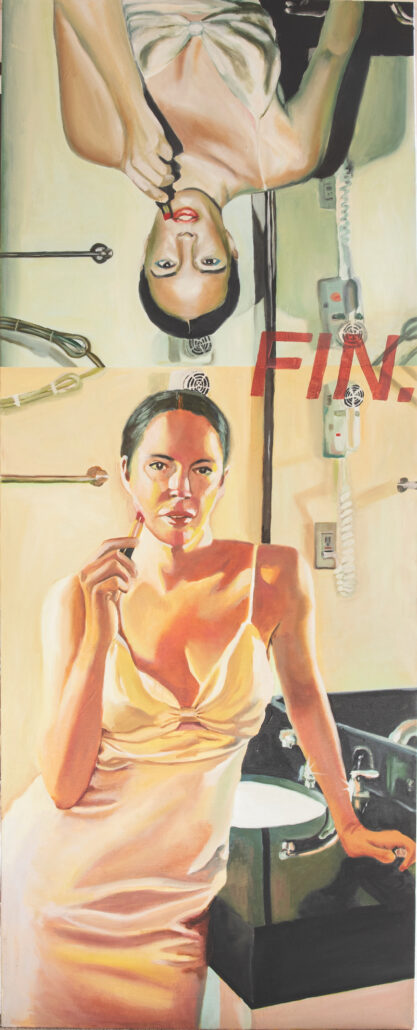“Figurativism to me is a sense of familiarity, rather than outright recognition”, says Melbourne-based artist Hannah Atherton, “I want my works to be recognisable in what they depict, but not necessarily what story they are trying to tell”.
Revelling in the unceremoniously familiar, Atherton portrays everyday activities like bathing, sleeping, eating and loving in her art. Using film stills and found imagery she detaches a moment from an act, displacing it in both time and context, before rendering them in richly hued oils. In doing so she allows her audience the freedom to interpret it as they wish, writing it into the narrative of their own life.
The selected scenes maintain their cinematic appeal, which is emphasised by compositional alterations such as the inclusion of mirror images, blank space, and text.
The text is not associated with the image’s source but collected from overheard conversations, snatched from real life and writ large across the work, recalling memories of movie posters.
If figurativism is the act of conveying reality, in direct contrast to abstraction, then Atherton’s works are the celebration of reality in its most uncomplicated forms. In the words of the artist: “from the items you choose to dress in, to the way your hair blows in the wind, to the tune in which someone knocks on your door – there is theatre in the mundane.”
Above: Hannah Atherton, REMOVE EVERYTHING WITHOUT RELEVANCE (ode to Chekhov’s Gun), 2021. Oil on canvas, 100 x 75cm. Courtesy: the artist.

Hannah Atherton, THE END, 2024. Oil on canvas, 152 x 61cm.
